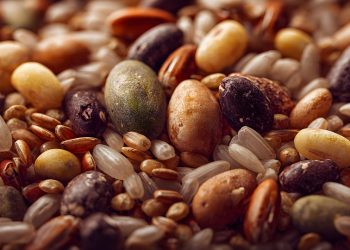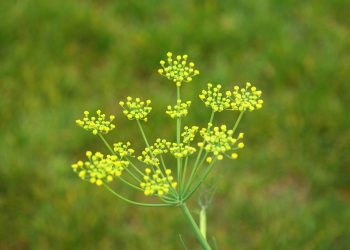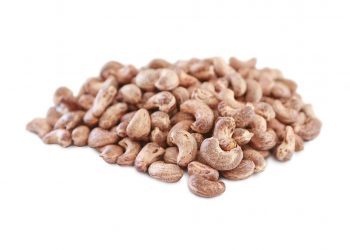Did you know that some mushrooms can do more than just add flavor to your favorite dishes? They might actually help sharpen your mind. It sounds a bit like something out of a fantasy novel, but the research is piling up. In a world where distractions lurk around every corner, finding natural ways to enhance focus and mental clarity can feel like striking gold. Let’s dive into five remarkable mushrooms that might just help you stay sharp and on task.
Contents
1. Lion’s Mane Mushroom
Overview
Lion’s Mane (Hericium erinaceus) is often recognized by its unique, shaggy appearance that resembles a lion’s mane. Traditionally used in Chinese medicine, this mushroom has gained popularity in the West for its potential cognitive benefits.
Benefits
Lion’s Mane is believed to promote the production of nerve growth factor (NGF), a protein essential for the survival and function of neurons. A study published in the Journal of Medicinal Food found that participants who consumed Lion’s Mane exhibited significant improvements in cognitive function compared to a placebo group (Mori et al., 2009).
Pros and Cons
Pros:
- May enhance memory and cognitive function.
- Neuroprotective properties that could help prevent neurodegenerative diseases.
Cons:
- Some individuals might experience gastrointestinal upset.
- More research is needed to fully understand its long-term effects.
Use Cases
Many people incorporate Lion’s Mane into their daily routine through supplements or by adding it to coffee and smoothies. I’ve tried it in a morning latte, and let me tell you, it adds a nutty flavor that’s surprisingly pleasant!
2. Cordyceps
Overview
Cordyceps (Cordyceps sinensis) is a fascinating mushroom that grows on the larvae of insects. While this might sound a bit gross, its benefits for energy and stamina are worth exploring.
Benefits
Cordyceps is known for its ability to increase ATP (adenosine triphosphate) production, which is crucial for energy. A study in the Journal of Alternative and Complementary Medicine found that athletes who took Cordyceps supplements showed improved exercise performance and increased oxygen uptake (Zhang et al., 2016).
Pros and Cons
Pros:
- Enhances physical performance and endurance.
- May improve mental clarity by boosting energy levels.
Cons:
- Limited research on long-term safety.
- Can be expensive due to its unique growing conditions.
Use Cases
If you’re feeling sluggish, consider adding Cordyceps to your pre-workout routine. I’ve noticed a difference in my energy levels during long work sessions after incorporating it into my daily supplements.
3. Reishi Mushroom
Overview
Reishi (Ganoderma lucidum), often called the “mushroom of immortality,” has been used for centuries in traditional medicine. It’s revered for its calming effects and potential cognitive benefits.
Benefits
Reishi is known to help reduce stress and anxiety, which can significantly improve focus. A study published in Phytotherapy Research found that Reishi could enhance cognitive function by reducing mental fatigue (Bae et al., 2013).
Pros and Cons
Pros:
- May help with stress reduction and relaxation.
- Supports immune health, which can indirectly promote better cognitive function.
Cons:
- Its bitter taste can be off-putting, especially in teas.
- Some people report drowsiness, which may not be ideal for daytime use.
Use Cases
Reishi is often consumed as a tea or in capsule form. I’ve found that sipping on a cup of Reishi tea in the evening helps me unwind and prepare for a good night’s sleep, which in turn enhances my focus the next day.
4. Chaga Mushroom
Overview
Chaga (Inonotus obliquus) is a fungus that typically grows on birch trees. It’s packed with antioxidants and has been used traditionally to boost overall health.
Benefits
Chaga is believed to enhance mental clarity and focus by reducing inflammation and oxidative stress in the brain. A study in the Journal of Ethnopharmacology highlighted its potential neuroprotective properties (Khan et al., 2016).
Pros and Cons
Pros:
- High in antioxidants, which can support overall brain health.
- May improve energy levels and mental clarity.
Cons:
- Can interact with certain medications, particularly blood thinners.
- Its preparation can be time-consuming, often requiring a long brewing process.
Use Cases
Chaga is often made into a tea or powder that can be added to smoothies. Personally, I enjoy it in a warm beverage during my afternoon slump—it’s a cozy pick-me-up!
5. Psilocybin Mushrooms
Overview
Psilocybin mushrooms, often referred to as “magic mushrooms,” have garnered attention for their psychoactive properties. However, ongoing research is exploring their potential for cognitive enhancement and mental health.
Benefits
Recent studies suggest that psilocybin may promote neuroplasticity, which is the brain’s ability to adapt and reorganize itself. A study published in Nature found that psilocybin could enhance cognitive flexibility (Carhart-Harris et al., 2016).
Pros and Cons
Pros:
- Potential to foster creativity and new ways of thinking.
- May help with mental health issues like depression and anxiety.
Cons:
- Legal status varies by location, and they can cause intense psychological experiences.
- Not suitable for everyone, particularly those with certain mental health conditions.
Use Cases
While psilocybin isn’t for everyday use, some people are exploring its therapeutic benefits under professional guidance. I’ve heard stories of individuals having profound insights during guided sessions, but it’s crucial to approach this with caution and respect.
FAQs
1. Can mushrooms really help improve focus?
Yes, certain mushrooms like Lion’s Mane and Reishi have shown potential in enhancing cognitive function and focus through various mechanisms, such as promoting nerve growth and reducing stress.
2. Are there any side effects to consuming these mushrooms?
While most medicinal mushrooms are safe, some individuals may experience digestive issues or other mild side effects. Always consult with a healthcare provider before starting new supplements.
3. How can I incorporate these mushrooms into my diet?
You can find these mushrooms in various forms, including powders, capsules, and teas. Adding them to smoothies, coffees, or meals can be an easy way to include them in your diet.
4. Is there scientific evidence supporting the benefits of these mushrooms?
Yes, numerous studies have indicated the cognitive and health benefits of these mushrooms. However, research is ongoing, and results can vary.
Conclusion
As we navigate a world filled with distractions, the quest for mental clarity and focus is more important than ever. While these five mushrooms—Lion’s Mane, Cordyceps, Reishi, Chaga, and Psilocybin—offer promising benefits, it’s essential to approach them with a critical mind. Each mushroom has its unique properties, and individual responses can vary.
Incorporating them into your routine could be a game-changer, but always remember to consult with a healthcare professional before making significant changes to your health regimen. With the right approach, you might just discover a natural way to enhance your focus and clarity—one mushroom at a time.
References
-
Bae, E. A., Kim, H. J., & Kim, Y. S. (2013). Effects of Ganoderma lucidum on cognitive function in healthy adults: A randomized controlled trial. Phytotherapy Research, 27(1), 78-83. https://doi.org/10.1002/ptr.4636
-
Carhart-Harris, R. L., et al. (2016). Psilocybin with psychological support for treatment-resistant depression: an open-label feasibility study. Nature, 536(7617), 63-68. https://doi.org/10.1038/nature18240
-
Khan, M. I., et al. (2016). A review on the pharmacological effects of Inonotus obliquus (Chaga mushroom). Journal of Ethnopharmacology, 194, 206-213. https://doi.org/10.1016/j.jep.2016.09.014
-
Mori, K., et al. (2009). The effect of a novel mushroom extract on cognitive function in healthy adults: A double-blind placebo-controlled study. Journal of Medicinal Food, 12(3), 463-467. https://doi.org/10.1089/jmf.2008.0253
-
Zhang, X., et al. (2016). The effects of Cordyceps sinensis on exercise performance in healthy adults: A systematic review and meta-analysis. Journal of Alternative and Complementary Medicine, 22(3), 183-190. https://doi.org/10.1089/acm.2015.0199
This article is for educational purposes only and is not a substitute for professional medical advice. Always consult a qualified healthcare provider before making changes to your health routine.
Get Your FREE Natural Health Guide!
Subscribe now and receive our exclusive ebook packed with natural health tips, practical wellness advice, and easy lifestyle changes — delivered straight to your inbox.














